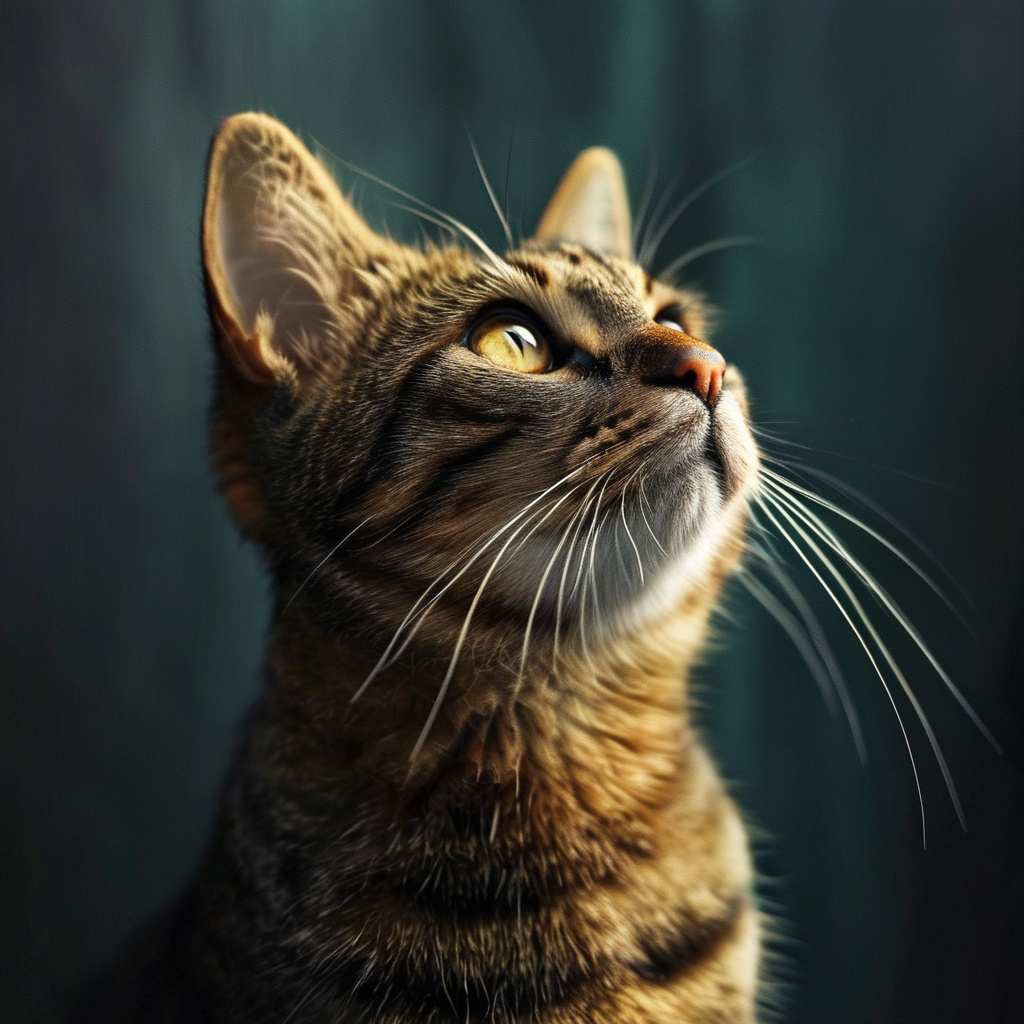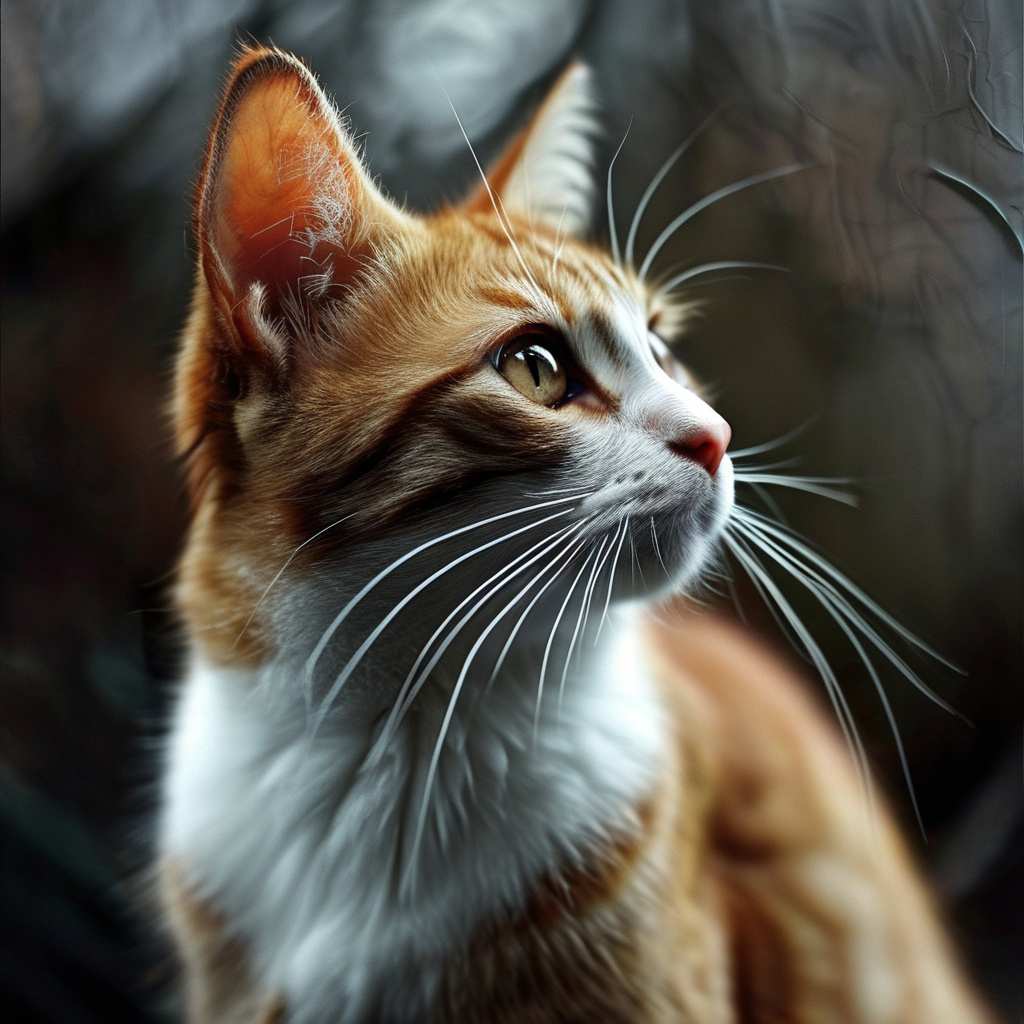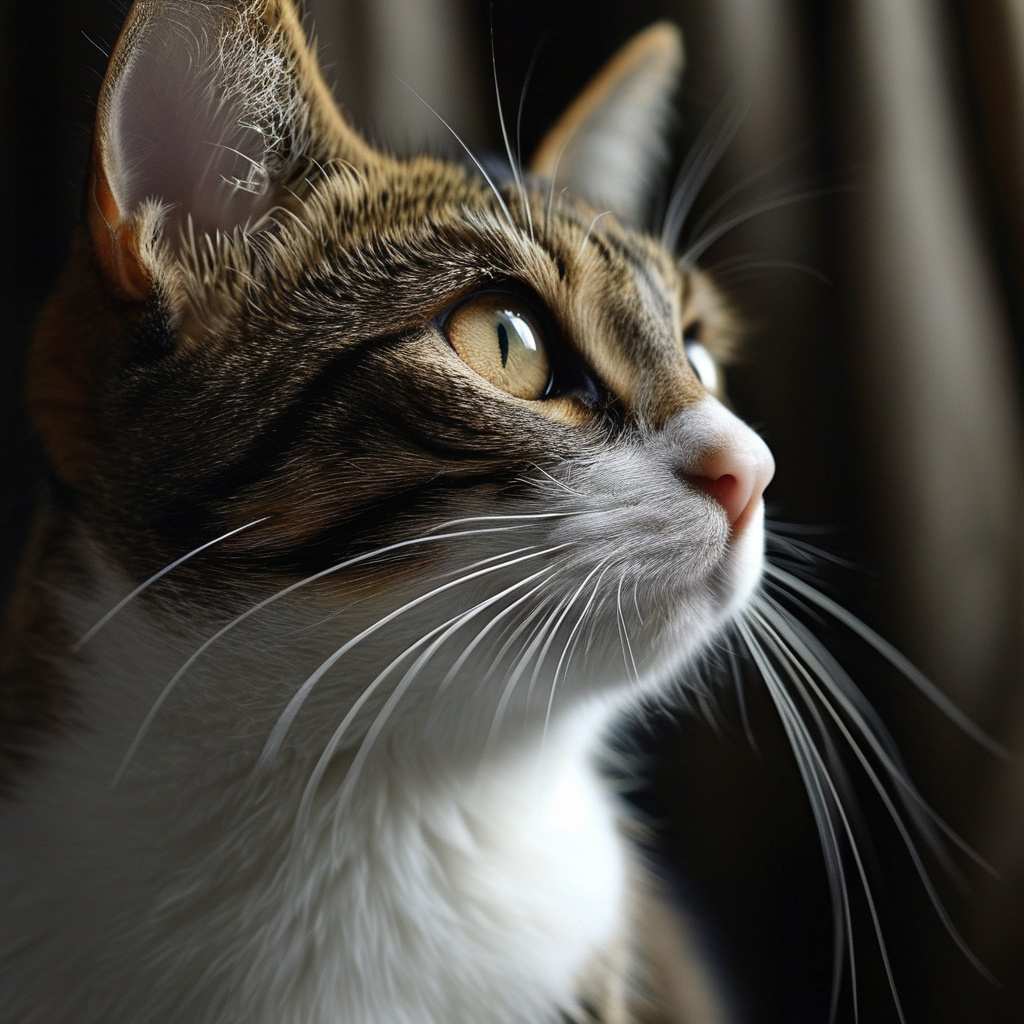 Introduction:
Introduction:
A cat’s meow is more than just a sound; it is a sophisticated tool of communication, primarily used in interactions with humans. While adult cats rarely meow at each other, they have developed a unique vocal repertoire to express their needs, emotions, and desires to their caregivers. These sounds range in frequency, tonality, and intensity, tailored to grab human attention much like the cry of a baby. Understanding the various reasons behind your cat’s meows can help build a stronger bond with your feline friend and ensure their well-being.
A cat’s meow is not a meaningless sound. It is a complex repertoire of sounds (with different tonalities, frequencies, and intensities) that our feline friends use almost exclusively when interacting with humans.
Related Post: Top 10 Common Feline Ailments That Require Veterinary Attention
If you observe adult cats, you can easily see that they “talk” to each other using a wide range of sounds, of which meowing is extremely rare. Kittens meow to call their mother. There is also the specific loud meow of a female cat in heat, signalling her readiness to reproduce with the male cat. In other cases, cats communicate with each other by hissing, growling, snorting, squeaking, purring, or cooing. Meowing has most likely evolved over thousands of years of evolution since they were domesticated by humans. Cats meow to communicate with their owners.
Related Post: The Ragdoll Cat: A Gentle Giant with a Mysterious Past
What is a cat meowing?
Cat meowing has long been of interest to scientists. They have suggested that domesticated carnivores make very different sounds from those they make in the wild – sounds with a frequency very similar to that of an infant’s cry. This suggests that cats may have learned to meow by observing the reactions of people around them. Indeed, a baby’s cry is a sound to which humans instinctively respond with great interest. It arouses protective instincts, and this is exactly what domestic cats expect from humans when they meow.
Related Post: The Unique Charm of Thai Cats: A Return to the Original Siamese Look
 A cat’s meow is a very individual thing, depending to some extent on the breed but mostly on the disposition of the individual cat. Just like humans, some cats are very “talkative”, while others are more taciturn in their daily lives. If you have more than one of these animals, you will easily notice that each one has its own specific repertoire of sounds that it uses depending on the circumstances. This further supports the theory that cats meow for a reason.
A cat’s meow is a very individual thing, depending to some extent on the breed but mostly on the disposition of the individual cat. Just like humans, some cats are very “talkative”, while others are more taciturn in their daily lives. If you have more than one of these animals, you will easily notice that each one has its own specific repertoire of sounds that it uses depending on the circumstances. This further supports the theory that cats meow for a reason.
What does a cat meow for?
Related Post: Choosing the Best Dog Treats: A Guide to Healthy, Natural Options for Your Pet
The cause of a cat’s meowing can be found by carefully observing your pet. The meaning of a cat’s vocalization can usually be deduced from the context. For example, cats meow when
They are greeting their owner and expressing joy at his return;
They want attention – for example, they want physical contact (petting), or they are bored and want to play;
Asking for food – usually hovering around their food bowl or following their caregiver into the kitchen;
Want to go behind closed doors – outside, into a closet, another room, etc;
Communicate that something is going on that bothers them or that they don’t like – for example, if their litter box is dirty or if someone is sitting on their favourite chair.
 It is important to pay attention to your cat’s meows, as they can be a very important signal. Sometimes, a cat’s vocalizations are simply a form of contact or a response to interaction with her caregiver. However, when cats meow for no apparent reason, it is often a sign of distress. In particular, a change in a cat’s usual vocal repertoire should be cause for concern. An odd meow from a normally “meek” cat may indicate illness.
It is important to pay attention to your cat’s meows, as they can be a very important signal. Sometimes, a cat’s vocalizations are simply a form of contact or a response to interaction with her caregiver. However, when cats meow for no apparent reason, it is often a sign of distress. In particular, a change in a cat’s usual vocal repertoire should be cause for concern. An odd meow from a normally “meek” cat may indicate illness.
How do you stop a cat from meowing?
 It is normal for cats to meow, and this should be taken into consideration when adopting a pet. However, your cat’s constant “chatter” can become a problem. Some pet owners complain about their cat meowing loudly in the middle of the night or during family dinner. This problem should never be solved by punishing the animal for unwanted behaviour. It is important to remember that the meowing is a message and to determine the cause. It is possible that the cat is signalling pain or a lack of water in its bowl, in which case the caregiver needs to respond appropriately. If the animal is simply demanding attention or a meal, its needs should not be met until it has calmed down.
It is normal for cats to meow, and this should be taken into consideration when adopting a pet. However, your cat’s constant “chatter” can become a problem. Some pet owners complain about their cat meowing loudly in the middle of the night or during family dinner. This problem should never be solved by punishing the animal for unwanted behaviour. It is important to remember that the meowing is a message and to determine the cause. It is possible that the cat is signalling pain or a lack of water in its bowl, in which case the caregiver needs to respond appropriately. If the animal is simply demanding attention or a meal, its needs should not be met until it has calmed down.
Conclusion:
Recognizing the significance of a cat’s meow is crucial for any pet owner. It serves as a form of communication, reflecting a cat’s emotional state and needs. By observing the context of their meowing, caregivers can respond appropriately, ensuring their cat’s physical and emotional health. While persistent meowing can become an issue, it is important to address its underlying cause rather than dismiss or punish the behavior. Understanding that cats meow for a reason can foster better communication and a more harmonious relationship between pets and their owners.
FAQs:
- Why do cats meow only at humans?
Cats have evolved to meow primarily as a way to communicate with humans, using sounds similar to a baby’s cry to elicit attention and care. - What are common reasons a cat might meow?
Cats may meow to greet their owners, ask for food, seek attention, or express discomfort, such as a dirty litter box or a closed door they want to get through. - Can meowing indicate that something is wrong with my cat?
Yes, a sudden change in a cat’s vocalization, such as an unusual meow from a normally quiet cat, can indicate distress or illness and should be addressed. - How can I stop my cat from meowing excessively?
First, identify the cause of the meowing. If it’s for attention or food, wait until your cat has calmed down before responding to discourage demanding behavior. - Is it normal for cats to meow at night?
Yes, but if nighttime meowing becomes excessive, it could indicate boredom, hunger, or discomfort. Try establishing a routine or ensuring their needs are met before bedtime. - Do different cat breeds meow differently?
Yes, meowing can vary depending on the breed and individual personality. Some cats are naturally more vocal than others. - Should I be concerned if my cat meows frequently?
Frequent meowing can be normal, but if it’s out of character or seems excessive, it’s important to check for underlying issues like health problems or environmental stress.
References: